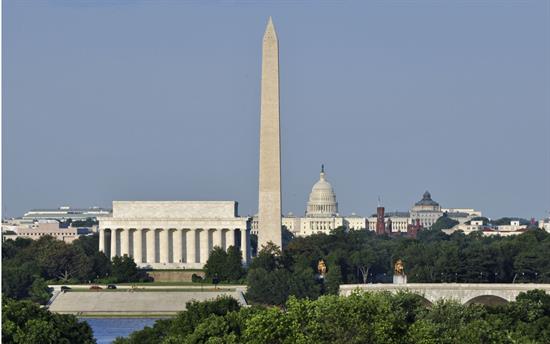Opinion Pieces
A Return To Transparency
Washington,
April 26, 2018
Note: This originally appeared in the Daily Caller on April 26. 2018. Today, it’s hard to imagine the federal government being that small, but its limited nature was intentional. The newly ratified Constitution opened with a clarion call to representative democracy that continues to reverberate around the world: “We the People of the United States…” In this new blueprint for government, any rights not specifically endowed to the federal government were retained by the people and their state governments. Checks and balances were carefully structured to ensure “We the People” were empowered with oversight of the federal government through their representatives in Congress. That’s because our Founders understood that one of the greatest keys to keeping power with the people was oversight, transparency, and accountability. As Patrick Henry said at the time, “The liberties of a people never were, nor ever will be, secure, when the transactions of their rulers may be concealed from them.” Fast-forward to today: we can’t even agree on how many departments, agencies, and sub-agencies actually exist in the federal government. USA.gov lists 137 independent executive agencies and 268 units in the Cabinet. In a Senate Judiciary Committee hearing in 2015, Chairman Chuck Grassley (R-Ia.) said, “The Federal Register indicates there are over 430 departments, agencies, and sub-agencies in the federal government.” You can go to the 2018 Federal Register Index to try to count them for yourself. The bureaucracy of our federal government may have ballooned since our early days as a country, but that only makes oversight, accountability, and transparency all the more critical. The arrogance of big government is that bureaucrats fall prey to a “we know best,” attitude. They act like they aren’t subject to the same rules as the rest of the country. They forget that they work for the American people — not the other way around. That is why today, perhaps more than ever, we must exercise extra diligence, vigilance, and perseverance to ensure government agencies comply with the critical oversight efforts that hold them accountable. Recently, we had an example of this. The Department of Justice (DOJ) missed the deadline of the subpoena issued by House Judiciary Chairman Bob Goodlatte (R-Va.). This deadline was supposed to force the department to provide the documents that the Committee has been requesting for months. Instead, lawmakers say they have only received about 3,000 out of the approximately 1.2 million documents requested. Although the DOJ has promised to produce more documents and added a new attorney to supervise the production, they have yet to see any progress. Additionally, we have seen the DOJ stonewalling the House Permanent Select Committee on Intelligence’s efforts to gain access to the document that officially launched the counterintelligence investigation into alleged collusion between the Trump campaign and Russia. This document is critical to understanding what basis the DOJ and FBI had for launching the investigation and how they went about it, but it is only the latest in a long series of examples of Congressional representatives having to fight to uphold their oversight duty. Regardless of where you stand on President Trump, allegations of collusion, or Russia’s proven meddling in U.S. elections, the DOJ and FBI’s seeming reluctance to provide transparency into their actions should concern every American citizen. The Constitution does not begin with “We the Government” or “We the Bureaucrat” — and that’s on purpose. While precautions to protect privacy or national security must always exist, federal agencies have a duty to comply with Congressional oversight because the American people and their representatives have a right to the facts and to the truth. It is at the heart of how citizens hold their government accountable. As James Madison wrote, “A popular government, without popular information, or the means of acquiring it, is but a prologue to a farce or a tragedy; or, perhaps both. Knowledge will forever govern ignorance; and a people who mean to be their own governors must arm themselves with the power which knowledge gives.” Yes, knowledge is power. America was founded on the idea that “governments are instituted among men, deriving their just powers from the consent of the governed,” or in more simple terms: the power belongs to the people. Federal agencies would do well to remember that today. |


